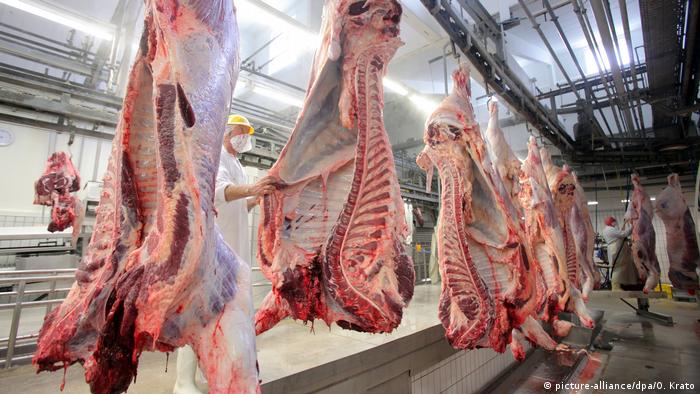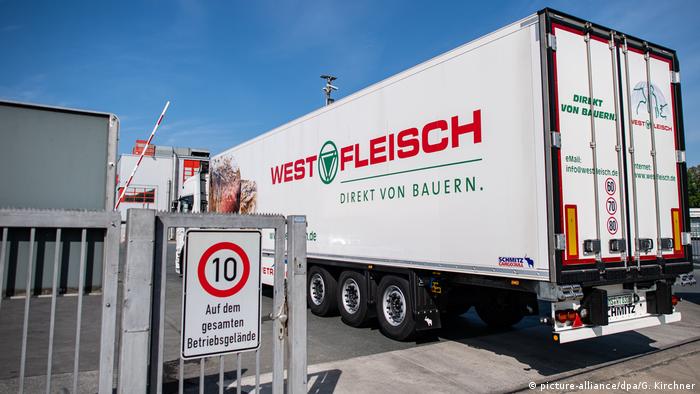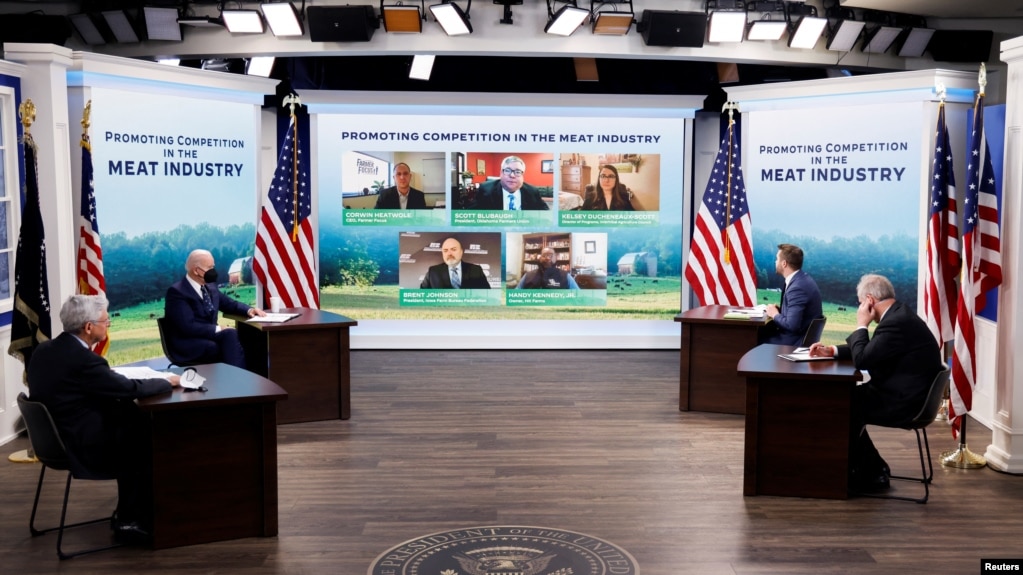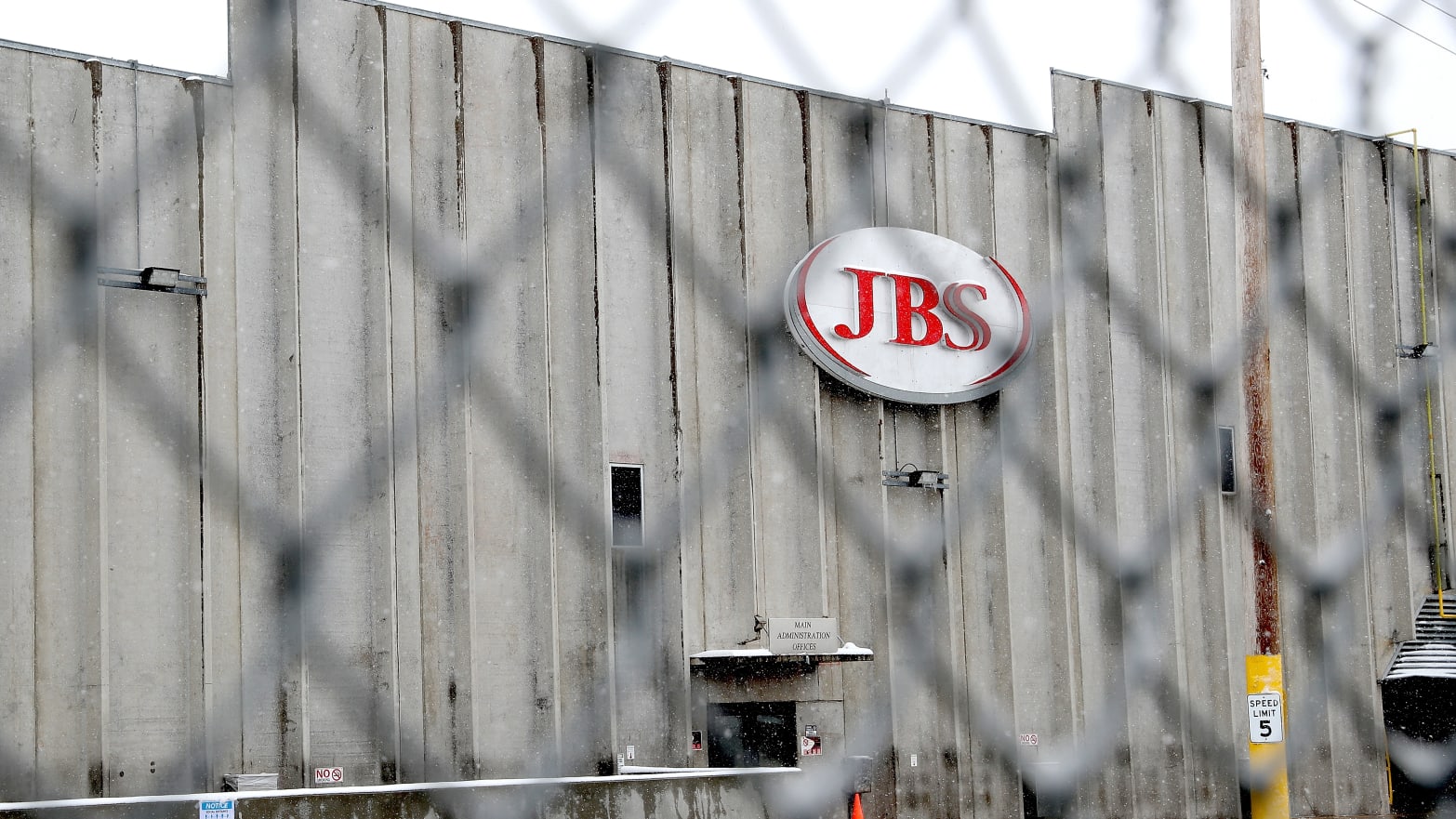As leaders warned of US meat shortages, overseas exports of pork and beef continued
THIS WOULD APPLY IN ALBERTA TOO
Kyle Bagenstose, USA TODAY•June 16, 2020
As U.S. meat production plummeted in April following a rash of coronavirus outbreaks and closures at processing plants across the country, industry and political leaders sounded an alarm.
Factory closures were “pushing our country perilously close to the edge in terms of our meat supply,” Kenneth Sullivan, CEO of Smithfield Foods, the country’s largest pork producer, warned in a public message April 6.
As closures worsened three weeks later, John Tyson, chairman of Tyson Foods, put his name on a full page ad in The Washington Post and The New York Times warning that America’s “food supply chain is breaking.”
“Our plants must remain operational so that we can supply food to our families in America,” Tyson said.
The next day, President Donald Trump threw the industry a lifeline. He invoked the Defense Production Act to declare it was crucial to keep meat plants open and operating. He had used the authority just once before: to ramp up production of personal protective equipment. The move elevated American meat processing into a privileged position.
“It is important that processors of beef, pork, and poultry in the food supply chain continue operating and fulfilling orders to ensure a continued supply of protein for Americans,” Trump wrote in his executive order.
But Americans were never at risk of a severe meat shortage, a USA TODAY investigation found, based on an analysis of U.S. Department of Agriculture data and interviews with meat industry analysts.
Instead, some critics say, the fear was used to justify the executive order, which provided some liability protection for meatpacking plants. It also created a uniform system of rules, set by the federal government, to keep plants open rather than leave the closure of meatpacking plants to a patchwork of state and local health authorities.

Amid concerns of the spread of COVID-19, a worker restocks chicken in the meat product section at a grocery store in Dallas, Wednesday, April 29, 2020.
“We’ve been very skeptical about these claims around shortages,” said Ben Lilliston, a co-executive director of the Institute for Agriculture and Trade Policy, which advocates for fair and sustainable food systems. “I think they were able to use the idea of food shortages as leverage to get those two things.”
Federal data reviewed by USA TODAY show that although American beef and pork production did tank in a six-week period stretching from mid-March to the executive order, exports of hundreds of millions of pounds of meat continued. The amount of beef and pork products exported over that time period actually exceeded the amount of lost production when compared with 2019 levels.
Lilliston pointed out the industry also never drew down meat supplies sitting in “cold storage” warehouses in the middle of the supply chain, which he said would have indicated faltering supply.
In fact, red meat and poultry products in cold storage grew by about 40 million pounds from March to April, reaching 2.5 billion pounds, USDA data show.
“Cold storage can tell you something. … If the levels are still pretty high there, that tells you they haven’t tapped into that,” Lilliston said.
Other experts also made a distinction between the “spot shortages” of meat – temporary shortages of some products in some places – that spiked in early May and a truly critical lack of protein-rich products.
“We’re not going to run out of meat,” Steve Meyer, an economist for Kerns & Associates, an agricultural commodities firm in Iowa, told USA TODAY in late April. “Buy what you need, and leave some for somebody else, and I think we’ll all get through this OK.”
Others say it’s more complicated. Economists warn that a sharp curtailment of exports to shore up domestic supplies could harm long-term trade relationships and possibly backfire as companies lose a profit motive to slaughter more animals. And Sarah Little, a spokeperson for the industry group North American Meat Institute, said efforts to stabilize the industry were to ensure that a serious shortage never arrived.
“While there was less variety to consumers, or certain regional areas may have experienced shortages of meat, it wasn’t a widespread shortage,” Little said. “It never got to a point where we thought Americans would not have access to food. That is never something our companies would want to see. And that’s why it was so important to be able to continue operations.”
But Tony Corbo, a senior government affairs representative of the nonprofit Food & Water Watch, said he saw a disconnect between the alarming language the industry used in April and the continued exports.
“There’s this incongruity between the Tysons of the world and the Smithfields of the world wringing their hands, saying this is going to cause all kinds of disruptions to the domestic meat supply, while at the same time behind everybody’s back they’re exporting,” Corbo said.
Production drops as exports rise
In the crucial month leading up to Trump’s executive order, USDA data show beef and pork production was in sharp decline. From March 20 to April 24, the industry produced 171 million fewer pounds of beef and pork than during the same stretch last year.
But the industry exported about 636 million pounds over the same time span, nearly four times the deficit. That number has since grown to more than 1.3 billion pounds exported through early June.
And while the U.S. does export significant quantities of “variety meat” products such as feet and tails that most Americans don’t eat, data from the U.S. Meat Export Federation shows those products accounted for less than 25% of the weight of exports in April.
Joe Schuele, vice president of communications for the federation, said that even among non-variety meats, some pork and beef products are more popular overseas. That includes exports of beef short plate, a tough and fatty meat, to Japan, and pork picnic, a shoulder cut popular in Mexico.
Federal export figures do not detail which cuts are being exported.
Data does show that the overall trends of meat production and export began to diverge by early April and grew further apart leading up to Trump’s executive order. During those several weeks, production of beef and pork dipped below 2019 levels, but exports soared above the amounts seen a year earlier. In the week ending April 23, the industry exported 98.6 million pounds of pork overseas, the second-highest total of 2020.
Lilliston said the continued push to export wasn’t surprising. The nation’s largest meat companies, which also include JBS and Cargill, are now global operations, with products flowing to wherever the most value is to be had, he said.
“It's not their mission to feed U.S. citizens,” Lilliston said. “They view the U.S. as a really important market, perhaps their most important market. But it's not 'Our job is to fill their grocery stores so people have enough to eat.’”
Hli Yang, a Tyson spokesperson, said the criticism was unfair.
“We export responsibly and assess market dynamics, such as COVID-19’s impact in the U.S., before making decisions,” Yang said.
Yang added that the company had been “prioritizing” beef and pork sales in the U.S. market.
“We also voluntarily curtailed beef and pork exports that fit the tastes of domestic consumers to try to meet U.S. demand during this challenging time,” Yang said.
Keira Lombardo, executive vice president of corporate affairs and compliance for Smithfield, said there’s a delay between production and export that meant food exported at the height of the pandemic was “ordered and processed” months before.
“More recently, U.S. exports have declined as a result of lower production amid COVID-19,” Lombardo said.
The White House did not respond to questions about Trump’s executive order for this story, referring the matter to the U.S. Department of Agriculture. The USDA did not respond to requests for comment.
Exports’ explosive growth
Agricultural economists say that improving domestic supply by limiting exports may not be as simple as it seems.
Over the past several decades, America’s meat industry has increasingly relied on exports for growth and profits. The U.S. now exports more meat than ever before, growing from less than 2% of production in 1960 to about 23% of pork, 16% of chicken, and 11% of beef in 2019, USDA data show.
“Most of the demand for meat has not been inside the United States,” said Jayson Lusk, head of the Department of Agricultural Economics at Purdue University. “It’s been outside the country, so it’s not surprising U.S. producers looking to grow their markets have looked elsewhere to try to find additional customers.”
Buoyed most recently by the Trump administration’s reworking of trade agreements with China and Mexico, 2020 was expected to be a banner year for exports, particularly pork. Farmers had expanded their herds in anticipation, leaving a glut once COVID-19 struck, which required some farmers to do traumatic mass cullings and placed additional pressure on plants to reopen.
Experts also say exportation has become deeply ingrained in the supply chain, down to the farm level. Some animals are primarily raised to send specific cuts overseas, with the remainder of the animal heading to U.S. supplies.
Lombardo, the Smithfied representative, said meat processing facilities are typically equipped to produce specific products, whether for retail, restaurants or exports. Converting them for another use takes time.
“Food supply chains are complex and products for one market cannot always be immediately reconfigured for another,” Lombardo said.
Without an export incentive, domestic supply could also dip, others said.
“I think those considering restricting exports overestimate the extent it would increase domestic consumption and underestimate the adverse economic impact,” said Glynn Tonsor, a professor of agricultural economics at Kansas State University.
Some remain skeptical that curtailing exports would hurt domestic supply. Roger Horowitz, a history professor and meat industry expert at the University of Delaware, said he believes companies would find a way to make use of all animals parts domestically or transfer costs to consumers, although perhaps for less money.
“Export restrictions could hurt profits, but not American consumers,” Horowitz said.
But Lusk added that any short-term domestic gains realized by curtailing exports could also result in long-term damage to trade relations.
“The issue is that there are real people and real relationships on the other end of those trade deals,” Lusk said. “If one cancels a contract today, do they lose that customer next month? What does that do to the profitability of the packing plant and the pork producers?”
The risks to workers
At the mercy of the economic equation are the nation’s meatpacking workers, who risk contracting COVID-19 in the workplace. While the Trump administration and industry leaders say conditions have improved for employees after workplace safety guidelines were implemented last month, workers continue to fall ill.
By tracking public reports, the Midwest Center for Investigative Reporting found that 10,000 meatpacking workers had fallen ill by May 5, with at least 45 deaths. Those numbers have since grown to more than 24,000 infections and at least 90 deaths.
For one plant inspector within the USDA’s Food Safety and Inspection Service (FSIS), it didn’t sit well that administration officials raised the specter of meat shortages while exports continued. The FSIS employs several thousand inspectors who visit meatpacking plants daily; at least four have died from COVID-19.
According to the inspector, who spoke with USA TODAY under condition of anonymity, FSIS officials initially addressed inspectors in April and said there was an urgent need to remain on the job, despite the risks of COVID-19.

Tyson Foods installed plastic barriers between worker stations at its meat and poultry plants to protect against transmission of the coronavirus.
“Because the meat supply to all Americans, including the inspectors’ families, kids, and grandkids could fail, leading to widespread meat shortages and malnutrition,” the employee recalled officials saying.
Agency officials later changed the tone of communications and are now simply thanking inspectors for doing their job, instead of citing concerns about food shortages, which the USDA inspector said was appreciated.
But USDA leadership is still using the argument publicly. In a June 9 statement announcing that meat production had returned to 95% of 2019 levels, USDA secretary Sonny Perdue again justified the push to keep meatpacking plants open by citing risks to the domestic food supply.
“I want to thank the patriotic and heroic meatpacking facility workers, the companies, and the local authorities for quickly getting their operations back up and running, and for providing a great meat selection once again to the millions of Americans who depend on them for food,” Perdue said.
Debbie Berkowitz, who spent six years as chief of staff and senior policy adviser at the Occupational Safety and Health Administration and is now director of the National Employment Law Project’s worker health and safety program, criticized the administration, saying worker safety has been jeopardized on a false premise.
“They just decided those lives were OK to sacrifice … and for what?” Berkowitz said. So many of (the) plants sent their pork to China. It wasn’t about feeding America.”
Lilliston said the tension between worker safety, domestic supply and export highlights a potential weakness of the modern-day U.S. meat industry. He advocates a reevaluation of how much power rests in the hands of just a few meatpacking companies whose primary mission is to grow exports.
“They’re not ready to give it up. Even when there are problems here domestically,” Lilliston said. “It really shows the power I think in some ways, of that sort of export-above-all mentality.”
No export restrictions, but May dip anyway
Although it was within his power to curtail exports under COVID-19, Trump declined to do so under the April 28 executive order. That broke from an earlier order on personal protective equipment, which invoked the Defense Production Act while telling manufacturers such as 3M that “it is the policy of the United States to prevent domestic brokers, distributors, and other intermediaries from diverting (PPE) material overseas.”
On May 1, CNBC cited current and former Trump administration officials in reporting that Trump was asked about the prospect of restricting meat exports on a private call with meat industry CEOs.
Trump responded that “he was not interested in restricting exports at this time,” CNBC reported.
The White House declined to comment to USA TODAY.
While U.S. meat production rallied, exports destabilized through May.
The amount of pork sent overseas crashed in the week after Trump’s executive order, dropping below 2019 levels. It has since moved back into year-over-year growth, but beef and pork exports have been on a downward trajectory since the executive order.
As meat production now nears 2019 levels, signaling a return toward some semblance of normalcy, the White House did not say if Trump has made any determination under what circumstances he would rescind the order.
This article originally appeared on USA TODAY: Meat shortages were unlikely despite warnings from Trump, meatpackers





















